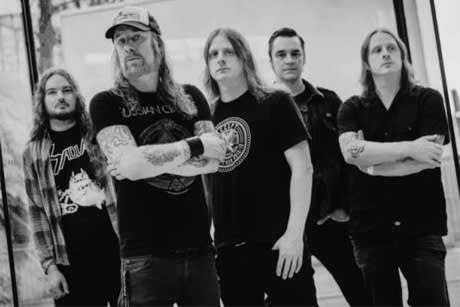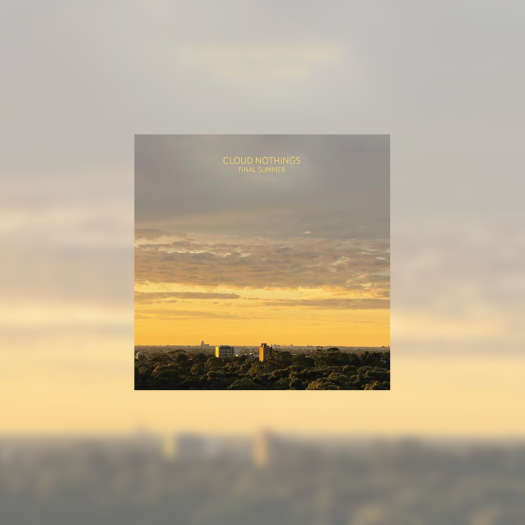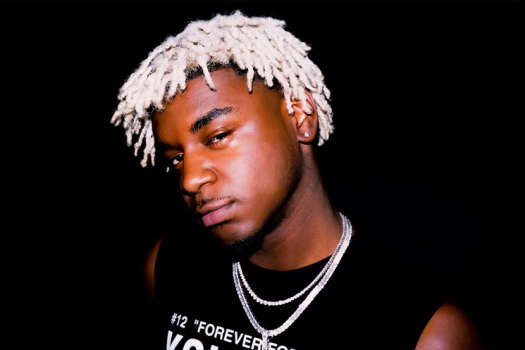"Slaughter of the soul, suicidal final art. Children, born of sin, tear your soul apart." Thus went the chorus to the title track of At the Gates' 1995 album, Slaughter of the Soul, which seemed destined to be their magnum opus. Just 10 months after its release, the band tore themselves apart after the pressure got to be too much for guitarist Anders Björler, who quit. It's a story that's gone down in metal history and helped elevate the album to legendary status as their "suicidal final art" — at least until now.
Tomorrow (October 28), the band return with At War with Reality, At the Gates' first album in 19 years. As you might expect, however, the band faced quite the battle to get it out into the world.
A reformation was announced in 2007 and took place during 2008, but the possibility of a new album was denied on multiple occasions. Even shows after 2008 were initially not in the cards.
"Times change people. At that time, all the statements were very honest," At the Gates vocalist Tomas Lindberg tells Exclaim! "But I guess we learned now that, before making a statement, we should really think about it a few times more."
Keeping that lesson in mind, they wrote in secret, starting with a few riffs from Björler in summer 2013. The decision not to announce what was forthcoming allowed them to avoid outside scrutiny, speculation and consequently, pressure.
"With Slaughter of the Soul there was a lot of negative pressure, even from ourselves," says Lindberg. "It was great doing that record, but it was really like, 'We have to come up with the best album ever' — that kind of feeling. If we would have gone in with that attitude doing this record, on top of the understanding [that] everybody is going to judge it because it's 20 years later, that would have held us back. Instead of 'Let's just be creative and lean against what we'd learned from the past, our experiences.'"
The feelings elicited by their new music reach back even further in the band's career to albums such as 1993's With Fear I Kiss the Burning Darkness and 1994's Terminal Spirit Disease.
"Slaughter of the Soul — it's the one album that stands out, I guess, for being pretty one-dimensional when it comes to emotions. It's very, very aggressive only, almost," explains Lindberg. "So we actually wanted a little bit to incorporate more of the earlier melancholy. To mix melancholy with desperation can — if you really get an honest approach to it and if you really make it from the heart — be very touching, in a way. With the melancholy mixed with desperation, it's kind of like frustrated anger instead of just pissed-off anger."
However, the band were careful to make sure the experience wasn't disjointed just because it was varied.
"You have one song [that] is more maybe just dark, even evil, and then you have the frustrated, aggressive song, you have the really melancholic, or even like the triumphant, kind of hopeful ending on the last song. There's a lot of different emotions going through there and we really tried [to make sure] that everything should really glue together."
The glue holding the new record together is its theme: magical realism. The literary style, which features realistic scenarios punctuated by spiritual or supernatural elements (à la Gabriel García Márquez's One Hundred Years of Solitude) was born in post-colonial South America around the 1940s and allowed writers to hide critiques of those in power in their writing to avoid persecution.
"I would say one part of it that is very special is the idea that the reader creates the text again," Lindberg says. "The author has created it first hand, writing it, but then you invent one version of this novel and I invent another version of this novel just by reading it and incorporating in my references, my context, my experiences. So the text is always alive and ever-changing, in a way. I think that's the main part.
"To read a novel, at first it can be very confusing because it's very, as I said, multilayered and very abstract, and it's also written a little bit like a labyrinth sometimes. You have to really try to get your head straight around all the angles, but the main idea is to mix a kind of like real or normal setting for a story and then throw in some of what these writers call 'heightened reality' or, as we would call it, fantasy or dream world on top of it, so you start to question what is real and what is not."
The personalized interpretations and multiple meanings will allow the listener to engage with the record on whatever level they feel comfortable.
"It's kind of an extra gift to the listener if they want it. It could be understood very easily; if you want to listen to the record and just feel the record and just be moved by it, on one level the lyrics work just like that. They are kind of a deeper, emotional aspect of how the song sounds, so it's really painting with words the same emotions as the songs depict. But then you could, on a different level, go into the concept and really explore further. There's a lot of, as I said before, intertextuality; there's references to books, novels, chapters. You could have fun with it if you are interested, but if you're not, you could still enjoy it as a normal record as well."
Romanian artist Costin Chioreanu, with whom the band had previously worked, delved into the lyrics to inspire a painting for each song. The cover art is his vision of the title track, which Lindberg says is the "statement of intent" regarding the concept.
"But the first track, 'Death and the Labyrinth,' is also — the lyrics to that song is actually about the concept of the album, so it kind of explains the concept and then 'At War With Reality' kicks in and it's kind of like the war chant," Lindberg says.
It's a war that Lindberg can get behind. Ultimately, he is wholly confident in the album he and his comrades created in Studio Fredman nearly two decades after their last.
"Unintentionally, it's kind of like a best of all our different sounds, in a way. We learned every lesson but still wanted to move forward. There are some new, weird aspects as well, arrangement-wise and stuff like that on this record, stuff that we might want to pursue later with other stuff, you know?"
At War with Reality arrives tomorrow via Century Media. As previously reported, At the Gates will be teaming up with Converge and UK unit Vallenfyre for the Decibel Magazine Tour next year. You can see all the dates below.
Read more from our recent interview with At the Gates here.
Tour dates:
03/27 Los Angeles, CA - The Wiltern
03/28 San Francisco, CA - The Regency Ballroom
03/29 Portland, OR - Roseland Theater
03/30 Vancouver, BC - Commodore Ballroom
03/31 Seattle, WA - Showbox at the Market
04/02 Salt Lake City, UT - The Complex
04/03 Denver, CO - Summit Music Hall
04/04 Lincoln, NE - Bourbon Street
04/05 Minneapolis, MN - Mill City Nights
04/06 Chicago, IL - House of Blues
04/08 Toronto, ON - The Phoenix
04/09 Montreal, QC - Metropolis
04/10 Boston, MA - Royale
04/11 Philadelphia, PA - Union Transfer
04/12 New York, NY - Webster Hall
Tomorrow (October 28), the band return with At War with Reality, At the Gates' first album in 19 years. As you might expect, however, the band faced quite the battle to get it out into the world.
A reformation was announced in 2007 and took place during 2008, but the possibility of a new album was denied on multiple occasions. Even shows after 2008 were initially not in the cards.
"Times change people. At that time, all the statements were very honest," At the Gates vocalist Tomas Lindberg tells Exclaim! "But I guess we learned now that, before making a statement, we should really think about it a few times more."
Keeping that lesson in mind, they wrote in secret, starting with a few riffs from Björler in summer 2013. The decision not to announce what was forthcoming allowed them to avoid outside scrutiny, speculation and consequently, pressure.
"With Slaughter of the Soul there was a lot of negative pressure, even from ourselves," says Lindberg. "It was great doing that record, but it was really like, 'We have to come up with the best album ever' — that kind of feeling. If we would have gone in with that attitude doing this record, on top of the understanding [that] everybody is going to judge it because it's 20 years later, that would have held us back. Instead of 'Let's just be creative and lean against what we'd learned from the past, our experiences.'"
The feelings elicited by their new music reach back even further in the band's career to albums such as 1993's With Fear I Kiss the Burning Darkness and 1994's Terminal Spirit Disease.
"Slaughter of the Soul — it's the one album that stands out, I guess, for being pretty one-dimensional when it comes to emotions. It's very, very aggressive only, almost," explains Lindberg. "So we actually wanted a little bit to incorporate more of the earlier melancholy. To mix melancholy with desperation can — if you really get an honest approach to it and if you really make it from the heart — be very touching, in a way. With the melancholy mixed with desperation, it's kind of like frustrated anger instead of just pissed-off anger."
However, the band were careful to make sure the experience wasn't disjointed just because it was varied.
"You have one song [that] is more maybe just dark, even evil, and then you have the frustrated, aggressive song, you have the really melancholic, or even like the triumphant, kind of hopeful ending on the last song. There's a lot of different emotions going through there and we really tried [to make sure] that everything should really glue together."
The glue holding the new record together is its theme: magical realism. The literary style, which features realistic scenarios punctuated by spiritual or supernatural elements (à la Gabriel García Márquez's One Hundred Years of Solitude) was born in post-colonial South America around the 1940s and allowed writers to hide critiques of those in power in their writing to avoid persecution.
"I would say one part of it that is very special is the idea that the reader creates the text again," Lindberg says. "The author has created it first hand, writing it, but then you invent one version of this novel and I invent another version of this novel just by reading it and incorporating in my references, my context, my experiences. So the text is always alive and ever-changing, in a way. I think that's the main part.
"To read a novel, at first it can be very confusing because it's very, as I said, multilayered and very abstract, and it's also written a little bit like a labyrinth sometimes. You have to really try to get your head straight around all the angles, but the main idea is to mix a kind of like real or normal setting for a story and then throw in some of what these writers call 'heightened reality' or, as we would call it, fantasy or dream world on top of it, so you start to question what is real and what is not."
The personalized interpretations and multiple meanings will allow the listener to engage with the record on whatever level they feel comfortable.
"It's kind of an extra gift to the listener if they want it. It could be understood very easily; if you want to listen to the record and just feel the record and just be moved by it, on one level the lyrics work just like that. They are kind of a deeper, emotional aspect of how the song sounds, so it's really painting with words the same emotions as the songs depict. But then you could, on a different level, go into the concept and really explore further. There's a lot of, as I said before, intertextuality; there's references to books, novels, chapters. You could have fun with it if you are interested, but if you're not, you could still enjoy it as a normal record as well."
Romanian artist Costin Chioreanu, with whom the band had previously worked, delved into the lyrics to inspire a painting for each song. The cover art is his vision of the title track, which Lindberg says is the "statement of intent" regarding the concept.
"But the first track, 'Death and the Labyrinth,' is also — the lyrics to that song is actually about the concept of the album, so it kind of explains the concept and then 'At War With Reality' kicks in and it's kind of like the war chant," Lindberg says.
It's a war that Lindberg can get behind. Ultimately, he is wholly confident in the album he and his comrades created in Studio Fredman nearly two decades after their last.
"Unintentionally, it's kind of like a best of all our different sounds, in a way. We learned every lesson but still wanted to move forward. There are some new, weird aspects as well, arrangement-wise and stuff like that on this record, stuff that we might want to pursue later with other stuff, you know?"
At War with Reality arrives tomorrow via Century Media. As previously reported, At the Gates will be teaming up with Converge and UK unit Vallenfyre for the Decibel Magazine Tour next year. You can see all the dates below.
Read more from our recent interview with At the Gates here.
Tour dates:
03/27 Los Angeles, CA - The Wiltern
03/28 San Francisco, CA - The Regency Ballroom
03/29 Portland, OR - Roseland Theater
03/30 Vancouver, BC - Commodore Ballroom
03/31 Seattle, WA - Showbox at the Market
04/02 Salt Lake City, UT - The Complex
04/03 Denver, CO - Summit Music Hall
04/04 Lincoln, NE - Bourbon Street
04/05 Minneapolis, MN - Mill City Nights
04/06 Chicago, IL - House of Blues
04/08 Toronto, ON - The Phoenix
04/09 Montreal, QC - Metropolis
04/10 Boston, MA - Royale
04/11 Philadelphia, PA - Union Transfer
04/12 New York, NY - Webster Hall




